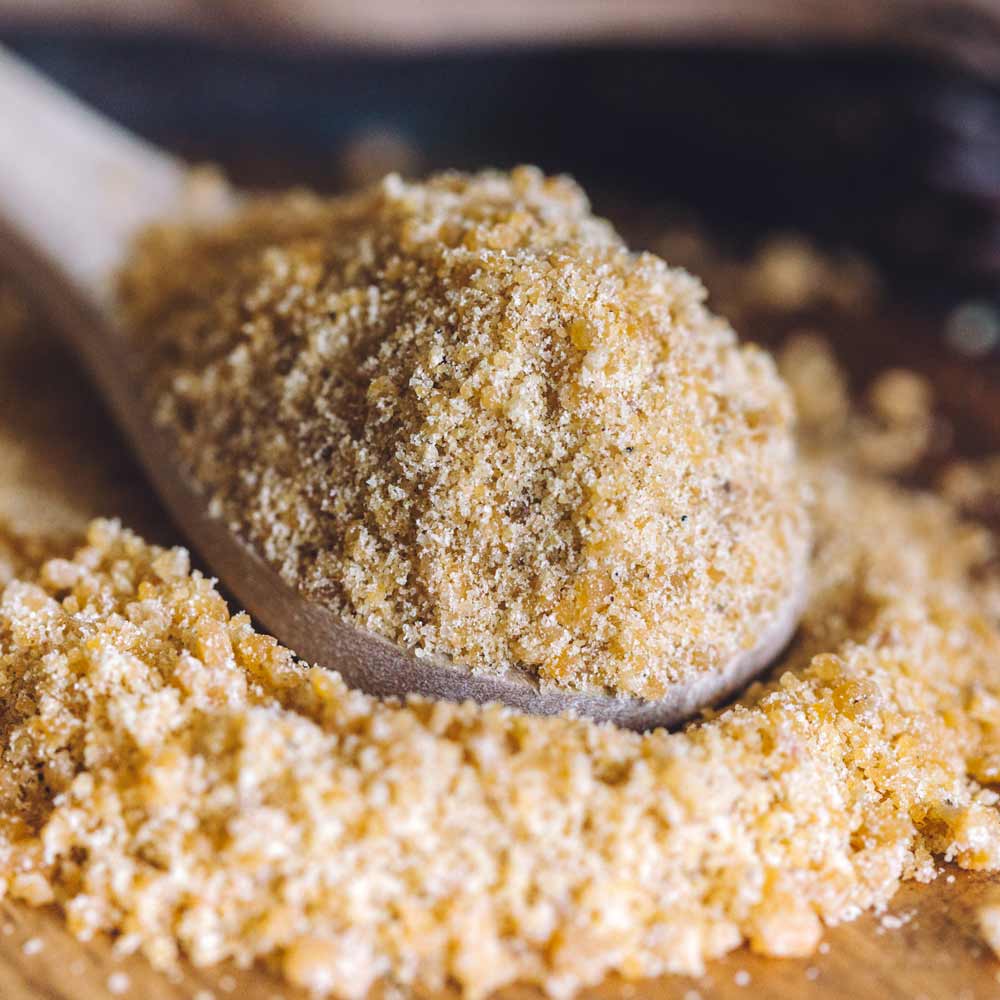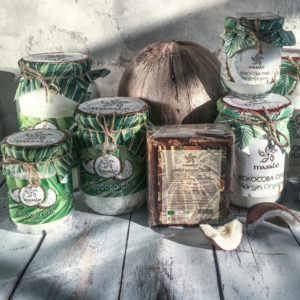A little excursion into the etymology of the name of one of our most unusual spices – Asafetida or Devil’s Pitch
The species name assa-foetida consists of elements of two languages: Assa – Latinized form of Farsi aza – resin, and Latin foetidus means smell, fruits.
Latin name of asafoetida – ferula means carrier or vehicle. Asafetida is mentioned in Greek mythology as the plant that helped Prometheus bring the stolen fire to Earth. It can be assumed that nomadic tribes may have actually used the empty stems of the plant to carry fire between camps.
There are also more picturesque names for asafoetida, such as: German teufelsdreck, French merde du diable, Swedish dyvelsträck and Turkish shaytan tersi, which means rather impolitely – devil’s ass or dung, and is an example of the little enthusiasm with which this unusual spice was met by outside the regions of its traditional use 😉
More than two thousand years ago asafetida was already known in Europe: Legend claims that it was encountered soldiers of Alexander the Great during the campaign through Central Asia. Alexander’s conquests opened trade routes that made oriental goods available in the Mediterranean region, and like black pepper, asafoetida quickly established itself in a new market.
Asafetida used in ancient Greek and Roman cuisines, often as a substitute for expensive North African silphion – a type of dill that was grown on the island Cyrenaica (modern Libya). After the extinction of the silphion, asafoetida became even more numerous widespread, and continued to be used until the 16th century, after which asafetida was no longer mentioned in European cookbooks. Maybe because of association with the devil.

For now asafoetida is again gaining popularity among chefs, who, however, warn about peculiarities of the use of spices during the preparation of dishes.
If if you purchased asafetida in powder form, it is most often mixed with flour, has a less pronounced specific aroma, but does not add to dishes the most stinking curiosity.
Asafetida from Masale – crushed pure resin, has a rather strong smell and it is desirable to use it in small quantities. A pinch of asafetida is considered enough to flavor a large pot of food. Asafetida enhances the taste of dishes made from legumes, mushrooms and vegetables, but can also be added to meat. In our opinion, they do not get along very well with fish.
The best way to process the spice according to the Indian tradition is to fry asafoetida in hot oil and add precisely this flavored oil to dishes, rather than pure resin. There are two reasons for this.
- First, the resin dissolves in hot fat, harmoniously mixes with other ingredients of the dish, is better absorbed by the body, while leaving its useful properties.
- Secondly, high temperature changes the taste of asafoetida to a more pleasant and familiar impression.
- Finally, powdered ferula loses its flavor after a few years, while pure asafoetida resin seems to be incorruptible. Maybe in ten years we will change this statement 🙂









